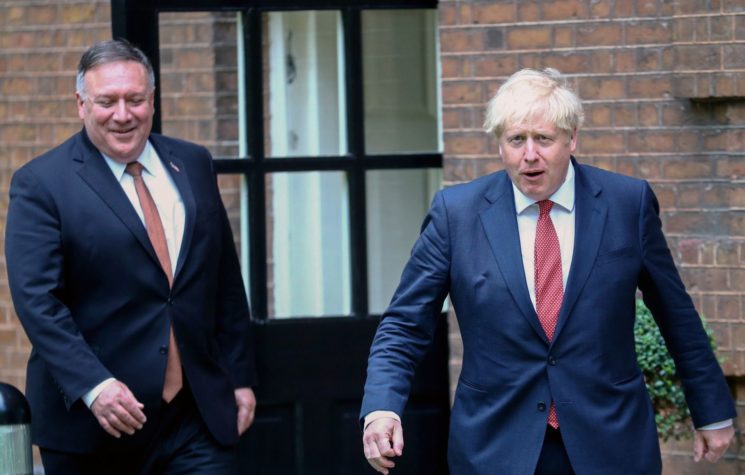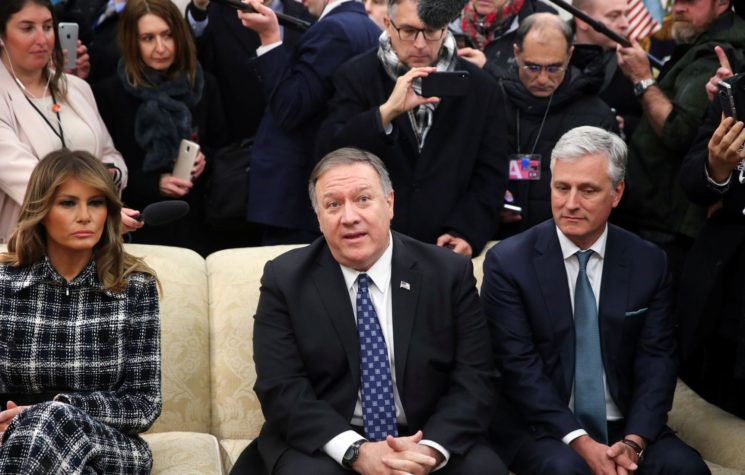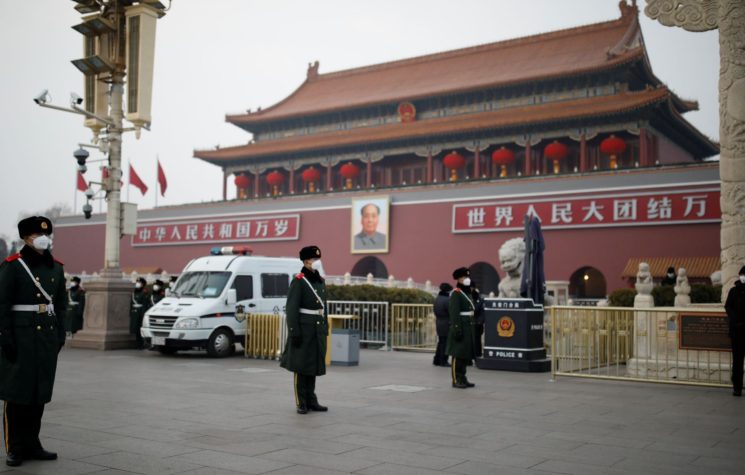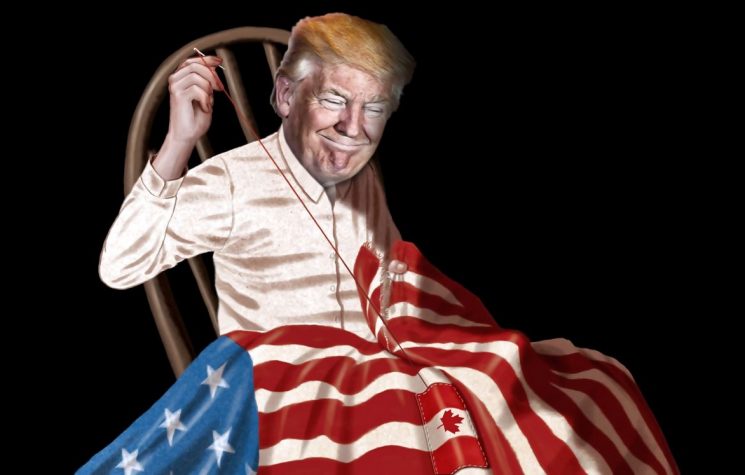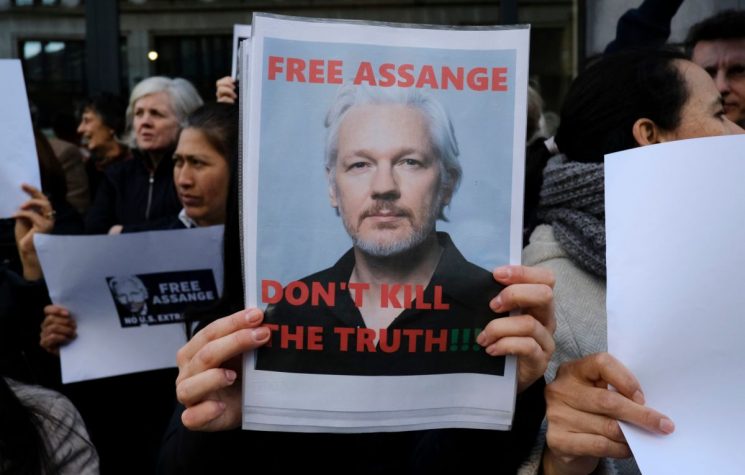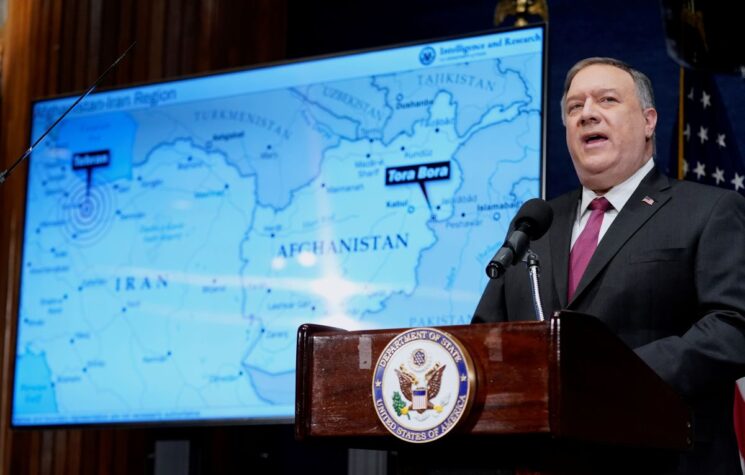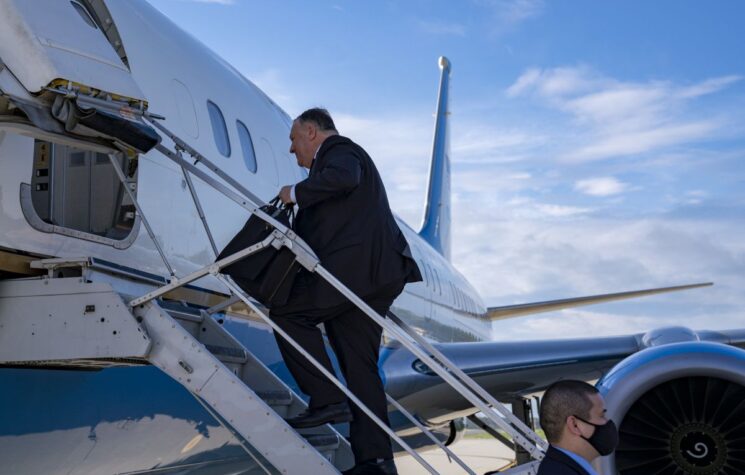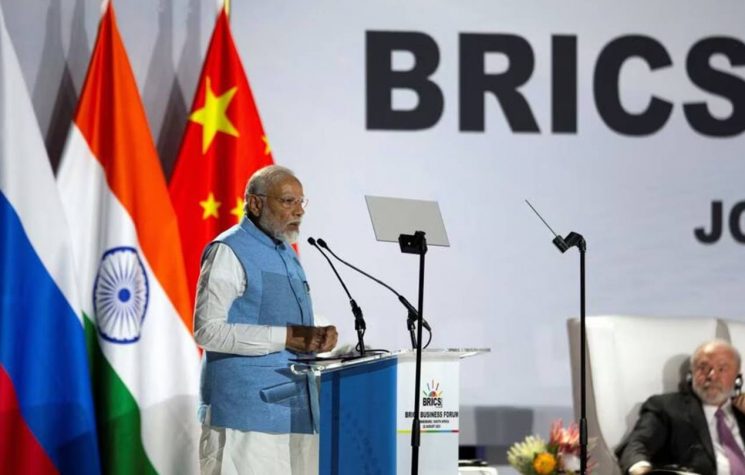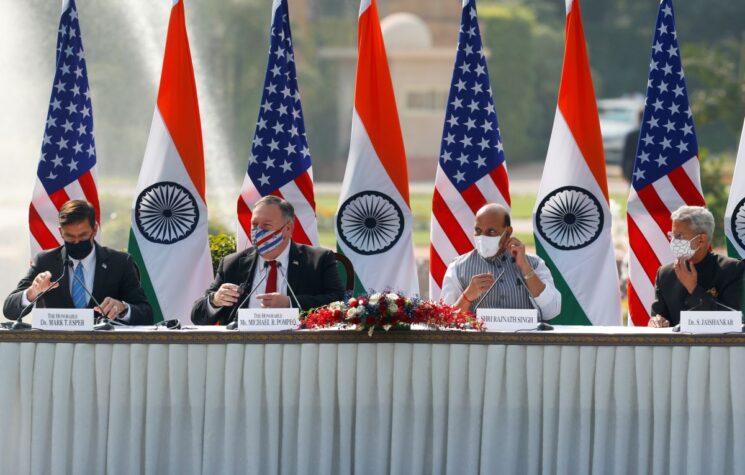When prominent U.S. personalities such as Secretary of State Pompeo speak critically and scornfully about leaders and other prominent figures of countries with whose policies they disagree, they ignore or even welcome the fact that such attacks are heard not only by the persons at whom they are aimed. The citizens of the country concerned are unlikely to disregard such criticism, and even if they may agree with some of it — perhaps all of it — on a purely practical or individual basis, they do not accept the premise that their countries are in the wrong because some foreign representative sounds off against their leaders.
There is a campaign of denigration being waged by Washington against Beijing, and Secretary Pompeo is brandishing the sharpest sword. His speech of July 23 at the Richard Nixon Library and Museum was a definitive indication of how the United States stands in regard to the People’s Republic of China, and its very title made it clear that Washington has no intention of engaging in reasoned dialogue that could lead to rapprochement with the Chinese government. Pompeo’s discourse on ‘Communist China and the Free World’s Future’ was a venomous diatribe aimed at persuading the world community to combine against the PRC.
Pompeo is nostalgic for the good old days of the Cold War, and warned that “If we bend the knee now, our children’s children may be at the mercy of the Chinese Communist Party, whose actions are the primary challenge today in the free world. General Secretary Xi is not destined to tyrannise inside and outside of China forever, unless we allow it. Now, this isn’t about containment. Don’t buy that. It’s about a complex new challenge that we’ve never faced before.”
He has probably done more to bond and unify the people of China than has been achieved by any other foreign politician in recent years.
The purpose of psychological operations (psyops), which is what Pompeo and many others are conducting against China, is to “induce or reinforce foreign attitudes and behaviour favourable to the originator’s objectives.” But one of the principles of psyops is to refrain from insulting national figures on the opposing side. By all means make gentle fun of them, because few things succeed more than laughter when you are attempting to sway people’s opinions against an individual — but rudeness and abuse directed against a country’s leader are more likely to have the effect of binding citizens together in a nationalistic fashion than uniting them in opposition to the leader whom the foreigners want them to overthrow.
And the word ‘overthrow’ is not used lightly, because Pompeo is encouraging the people of China to rise up and renounce their government and do just that. He declared that “we must also engage and empower the Chinese people, a dynamic and freedom loving people who are completely distinct from the Chinese Communist Party.” This is flagrant encouragement of revolution, and when Chinese Foreign Minister Wang Yi spoke with his French counterpart Jean-Yves Le Drian on July 28 he said the Trump administration wants to “constantly provoke China’s core interests, attack the social system chosen by the Chinese people and slander the ruling party that is closely connected with the Chinese people.”
Summing up the U.S. position as regards the conventions of diplomacy, which are the tools of those who wish to maintain decency and civility when seeking dialogue, Mr Wang said that Pompeo’s diatribes “have lost the most basic etiquette for state-to-state exchanges and have broken through the most basic bottom line of international norms.” But it is unlikely that the Trump administration will make any attempt to restore courtesy to the world stage.
And it isn’t only words that are making Washington’s belligerent posture clear to Beijing and the world, because the Pentagon has been conducting all sorts of fandangos along China’s borders, clearly aimed at provoking the Beijing government to take some sort of action.
In July the Pentagon sent a battle fleet to the South China Sea and, as observed by the New York Times, “the deployment of an American aircraft carrier and its strike force is often used as a signal to deter adversaries. Deploying two at once is recognized as a significant show of force.” This wasn’t just a show of force : it was a long-planned inflammatory operation designed to irritate and exasperate what Pompeo refers to as “the centre threat of our times.”
Washington went as far as it could in trying to make Beijing react to its coat-trailing combat ship operations which were complemented by the Pentagon’s deployment of some fifty reconnaissance and electronic warfare aircraft to fly around China’s coastline on missions designed to locate defence radar installations and other sensitive sites. These some RC-135 Rivet Joint aircraft which “not only detects, geolocates, and classifies enemy air defense emitters, but it also provides communications and other forms of signals intelligence.”
Other intelligence aircraft were EA-18 Growler jets, operated from the two aircraft carriers and described as “the most advanced electronic attack aircraft”, which manufacturer Boeing notes “brings fighter aircraft speed and manoeuvrability… [and] the ability to locate, record, play back and digitally jam enemy communications over a broad frequency range.”
These aircraft are part of the concerted effort to intimidate the Beijing government and the people of China by demonstrating massive military power and most sophisticated attack capabilities. The Pentagon is using its electronic warfare assets to show the “Chinese Communist Party” (in Pompeo’s words) that it is preparing to take ultimate action against Chinese forces, and there is little doubt that this surge of provocation is having a complementary effect to Pompeo’s diatribes, in that it is binding the people of China together, rather than encouraging them to overthrow their government that has lifted hundreds of millions of people out of poverty.
China is feeling stronger, day by day. It is well aware of the most recent Gallup report concerning the international standing of the United States, which showed that, for example, “U.S. leadership approval is at its lowest among the country’s traditional allies in Europe, where 61% disapprove of its performance and just 24% approve.” If the U.S. and China went to war, it is far from guaranteed that Washington’s international support would be significant.
And China is prepared for that ultimate confrontation with the United States. The time is very near when Beijing will take action if the Pentagon’s forces take steps out of line in the South China Sea or elsewhere along China’s borders. There could well be PLA (Navy) reaction involving an attack on a U.S. Navy combat vessel, and then Beijing would sit back — but not with folded arms — while Washington decided what to do.
The Pompeo diatribes and Washington’s surge in border provocations won’t cause revolution in China. They will increase domestic unity, cause western nations to doubt even more if they should become involved, and very possibly lead to war.








